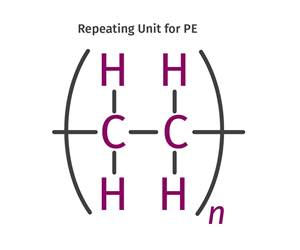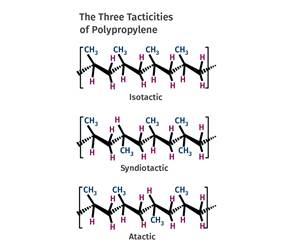PVOH-Based Resin: Challenger to LDPE and HDPE?
Aquapak Polymers’ 100% biodegradable resin poised as a sustainable option to conventional plastic film packaging.
A relatively new startup company in the U.K, Aquapak Polymers Ltd., is a developer, manufacturer and distributor of a new, strong, biodegradable, recyclable, and marine-safe plastic film resin, called HydroPol, positioned as an alternative to plastics such as L/LLDPE and HDPE in number of food and non-food applications.
The company is a member of the Circular Economy Taskforce, a ┤¾¤¾┤½├¢-led group convened by the Green Alliance—a forum for policy innovation and ┤¾¤¾┤½├¢ thinking on resource use in the U.K. The company is led by director John Williams, a former adviser to the U.K. government and well known for his work with bioplastics.
Aquapak began its quest six years ago to develop a ‘super-polymer’ that was as strong as, or stronger, than existing plastic film resins, but offered a range of end-of-life options, as noted by managing director Mike Everard. It is important to note that the company opted to use an existing polymer from which a new formulation could be achieved that met its desired goals.
Through a patented process, Aquapak was able to significantly increase the strength of PVOH, as well as make it tear and puncture resistant. Very importantly, the company developed a pellet that could work in standard PE film equipment to enable the production of the material to scale up once demand for it increases.
The material has been shown to be at least twice as strong as HDPE of equivalent gauge
Moreover, the Aquapak team successfully overcame past issues associated with recycling. Through use of a closed-loop system, the polymer can be recovered from the PVOH via a simple chemical process and re-pelletized ready for reuse. According to Everard, the material is non-toxic and fully biodegradable, as it is compatible with anaerobic digestion or composting systems, and does need to be de-packaged prior to processing. If after use, the film ends up in waterways, it will eventually dissolve and will not harm marine life.
Aquapak is looking at a number of commercial applications for its flexible plastic, but it is definitely nicely suited for food packaging since it is FDA approved and acts as an oil, solvent and air barrier, keeping dried or fresh food products fresher for a longer period of time. Such applications can include bread bags, pasta and rice packets, sandwich bags and film on ready-meal containers—types of packaging of which only 3% are believed to have been recycled in 2015.
The company has conducted rigorous tests on functional performance and strength—it has been shown to be at least twice as strong as HDPE of equivalent gauge, as well as how it performs in different end-of-life situations. Meanwhile, tests and analysis are ongoing to determing performance attributes against other materials.
HydroPol films can be produced in a range of weights and thicknesses, and they can be clear or colored and printed directly without Corona treatment—a big plus in the food packaging arena. Production of HydroPol is commencing this month at a new state-of-the-art facility in the U.K.
The material will be made available in North America, as well as globally. Aquapak is currently working to secure a ┤¾¤¾┤½├¢ partner/distributor in the region. The company has also submitted an application for registered trademark in the U.S., and it has already been officially registered in the U.K. In the meantime, further inquiries can be send to info@aquapakpolymers.com. The website is currently under construction.
Related Content
Prices of All Five Commodity Plastics On the Way Up
Despite earlier anticipated rollover in prices for most of the volume commodity resins, prices were generally on the way up for all going into the third month of first quarter.
Read MorePrices of PE, PP, PVC, PET Largely Firm, Flat for PS
By most measures, pricing for the five commodity resins appeared to be holding firm going into the third quarter.
Read MoreThe Fundamentals of Polyethylene – Part 2: Density and Molecular Weight
PE properties can be adjusted either by changing the molecular weight or by altering the density. While this increases the possible combinations of properties, it also requires that the specification for the material be precise.
Read MoreFundamentals of Polyethylene – Part 5: Metallocenes
How the development of new catalysts—notably metallocenes—paved the way for the development of material grades never before possible.
Read MoreRead Next
Lead the Conversation, Change the Conversation
Coverage of single-use plastics can be both misleading and demoralizing. Here are 10 tips for changing the perception of the plastics industry at your company and in your community.
Read MoreBeyond Prototypes: 8 Ways the Plastics Industry Is Using 3D Printing
Plastics processors are finding applications for 3D printing around the plant and across the supply chain. Here are 8 examples to look for at NPE2024.
Read MoreMaking the Circular Economy a Reality
Driven by brand owner demands and new worldwide legislation, the entire supply chain is working toward the shift to circularity, with some evidence the circular economy has already begun.
Read More















